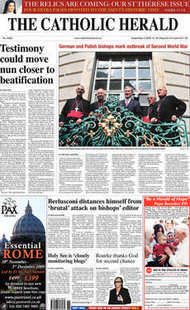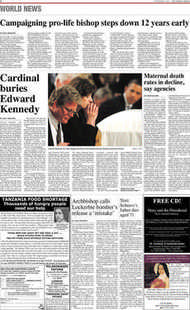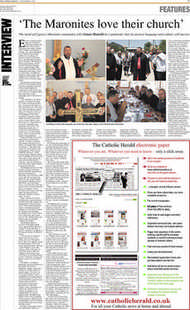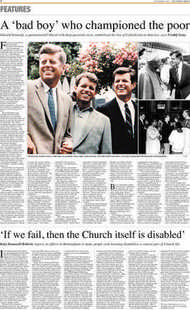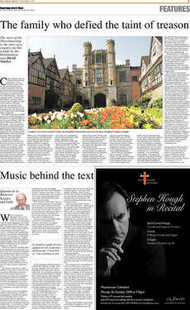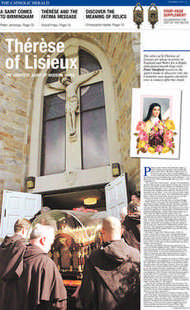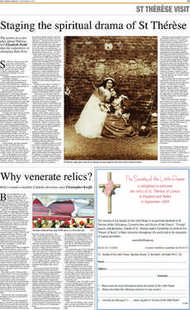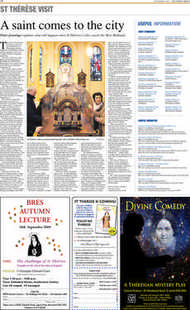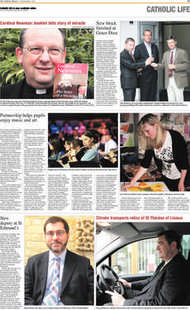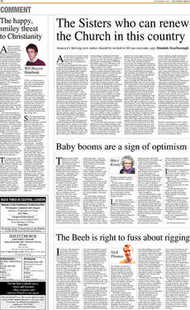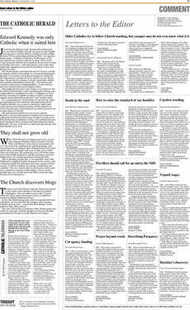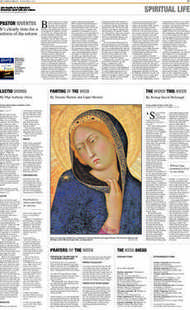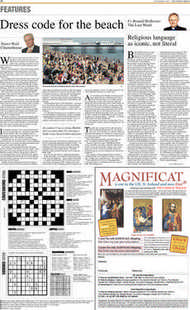Page 3, 4th September 2009
Page 3
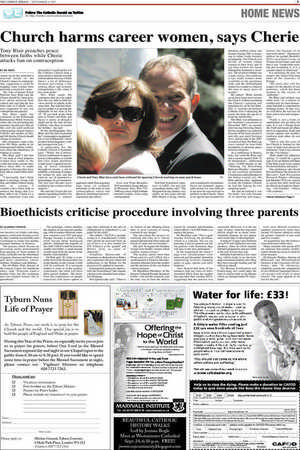
Report an error
Noticed an error on this page?If you've noticed an error in this article please click here to report it.
Tags
Share
Related articles
Justice Dictates That Limbo No Longer Exists
Pro-life Lobby Rallies To Fend Off Scientific 'advance'
Latest Embryo Tests Criticised
Embryonic Screening Breakthrough Prompts New 'designer...
Church Attacks Moves To Allow Designer Babies
Doctors Claim To Have 'holy Grail'
Bioethicists criticise procedure involving three parents
BY ALANNAH FRANCIS
THE PROSPECT of a baby with three parents could soon become a reality after scientists successfully used a technique to create four healthy macaque monkeys in America.
The process, which focuses on preventing faulty mitochondria from passing on from mother to baby, could prevent the inheritance of genetic diseases and brain, liver and heart conditions, cancer, diabetes, blindness and deafness.
But Dr Helen Watt, director of the Linacre Centre for healthcare ethics, said: “Everyone wants a healthy baby, but this technique does not respect human life or parenthood.” The technique, which transfers the nucleus of one egg into another egg with its nucleus removed, raises new concerns over IVF and gene therapy because it results in the child having three biological parents. Although the majority of the child’s DNA would be from the mother and father, a small amount would come from the donor of the healthy mitochondria.
Dr Watt said: “If a baby is eventually born from the procedure, his or her identity as one woman’s child will be confused. If a surrogate mother is used, as in the monkey experiment, the child will have three partial mothers. We know from the experiences of people conceived with donor sperm or eggs that confusion in the area of motherhood or fatherhood is not good for the child.” She added: “All IVF is morally wrong as it ‘manufactures’ a baby who should be received from an act of love; it is also routine for IVF embryos to be ‘graded’ and thrown away as spare or abnormal.” Josephine Quintavalle of Comment on Reproductive Ethics also expressed concerns about the enthusiasm in the Britain for the process to be applied to humans.
International protocols, particularly the Nuremburg Code, require consent to be obtained from potential offspring.
Mrs Quintavalle said: “There is no chance of the offspring being able to give consent to being exposed to any danger.” She described the process as worrying and risky as it “moves natural reproduction from male and female to male and two females”.
She said: “It requires the donation of eggs from healthy women which exposes women to risks.” The nucleus carries more than 99 per cent of a cell’s DNA, but a small amount is found in the mitochondria inherited from the mother and the mutation of this can lead to various diseases.
Dr Shoukhrat Mitalipov, of the Oregon National Primate Research Centre, who led the research, said the only way to treat the defects caused by mutated mitochondria which affects 1 in 6,500 births is to replace the genes.
Dr Mitalipov said “This is gene transfer involving the germline, which is a concern, but we are pursuing it not for general use but for patients with mutations they will pass to the next generation.” In the experiment the donor’s eggs own chromosomes were removed and discarded. Germline engineering involves changing genes in eggs, sperms and early embryos.
Tests showed that none of the monkeys had any trace of mitochondrial DNA from the mother that provided their nuclear DNA, suggesting that the process was successful. However, it is far too early to know what the long-term effects might be as many mitochondrial diseases do not appear until much later in development.
A total of 15 eggs were fertilised using IVF and implanted into nine monkeys, three of which reached full-term pregnancies and gave birth at the end of June this year.
Scientists hope that in a few years they will be ready to try the technique on human patients, providing they have enough funding and the ethical go ahead.
The Human Fertilisation and Embryology Act could open the door to similar trials in the Britain which are banned under EU legislation. Last year, British scientists sparked controversy when they created 10 human embryos using the genetic material of one man and two women.
As required by law the embryos were destroyed within days.
Many scientists who are pro-IVF are adamant that genetic modification should not occur in food let alone humans.
Dr Douglas Wallace, director of Molecular and Mitochondrial Genetics at the University of California, said: “In electricity, randomly mixing the components of two different integrated electrical circuits will result in short circuits. The same appears to be true for the cell.”
blog comments powered by Disqus


